"ECPs can be trained in 2 years, whereas it would take nearly a decade and…
ECPS teach ultrasound to imaging the world
Written by: Rashidah Nambaziira, Masaka Program Director, GEC
Recently, Global Emergency Care (GEC) was honored to collaborate with Imaging The World (ITW) on a 2-day emergency care training. Imaging The World’s mission is to bring accessible, affordable, high quality ultrasound imaging to remote and underserved communities. ITW has been doing similar work to GEC – seeking to create a sustainable educational intervention and incorporating it into the Uganda medical education system. In addition to research and outreach programs, ITW offers a Point-of-Care (POC) ultrasound curriculum that focuses on OBGYN ultrasound diagnostics, and maternal/fetal care. Partnering with GEC, the ITW providers wished to expand their knowledge of general topics in emergency medicine in order to use POC Testing for acutely ill and injured patients.
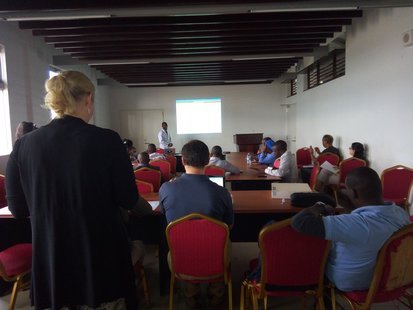 POC ultrasound has served to be one of the best additions to emergency rooms at hospitals where we operate because it is a fast, convenient, and inexpensive way to make an accurate diagnosis. These factors go a long way in resource-limited settings, like Masaka Hospital and rural health centers, where patients often can’t afford the cost (including travel) to town for a formal ultrasound. Additionally, acutely ill patients often need intensive resuscitation and monitoring. Thus, leaving the hospital to get an ultrasound at a clinic not only delays their care, but also can be dangerous as well. By identifying intra-abdominal bleeding from trauma or a ruptured ectopic pregnancy, a POC Focused Assessment with Sonography in Trauma (FAST) exam in the Emergency Department can mean the difference between life and death in Uganda. For these reasons, and evidence in improved patient care, POC ultrasound is a big part of the Global Emergency Care (GEC) curriculum.
POC ultrasound has served to be one of the best additions to emergency rooms at hospitals where we operate because it is a fast, convenient, and inexpensive way to make an accurate diagnosis. These factors go a long way in resource-limited settings, like Masaka Hospital and rural health centers, where patients often can’t afford the cost (including travel) to town for a formal ultrasound. Additionally, acutely ill patients often need intensive resuscitation and monitoring. Thus, leaving the hospital to get an ultrasound at a clinic not only delays their care, but also can be dangerous as well. By identifying intra-abdominal bleeding from trauma or a ruptured ectopic pregnancy, a POC Focused Assessment with Sonography in Trauma (FAST) exam in the Emergency Department can mean the difference between life and death in Uganda. For these reasons, and evidence in improved patient care, POC ultrasound is a big part of the Global Emergency Care (GEC) curriculum.GEC-trained Emergency Care Practitioners (ECPs) conducted the training with the purpose of expanding the ultrasound skills of the ITW-trained staff to include applications of POC ultrasound in trauma (eFAST); assessment of fluid status in shock patients using IVC ultrasound; lung ultrasound to diagnose pneumonia; and pelvic ultrasound in suspected ectopic pregnancy.
It was a very successful training to both organizations, as both teams learned a lot from each other. “It was really fun, and helped boost my confidence,” said Elizabeth, one of the GEC trainers. ITW brought a diverse team composed of doctors, sonographers, nurses, and clinical officers. Our ECPs are used to teaching nurses, so, training mixed cadres presented a new exciting challenge for them, which boosted their confidence.
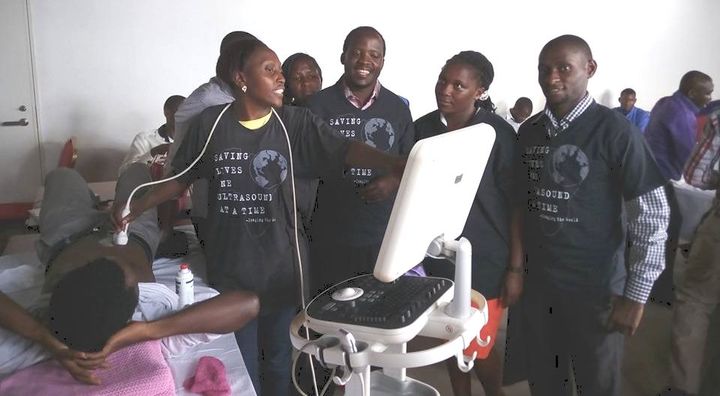
“It’s inspirational to work with people doing similar work, and really inspiring that they were actually taking the effort to learn, engage, and ask questions,” said Alfunsi, an ECP trainer from GEC. The ECPs felt that the ITW team was humble and a delight to teach, which made the training a success, and left them eager to work with ITW again in the future.
In addition to the dissemination of clinical knowledge and ultrasound skills, the GEC team enjoyed the sessions. “We loved having them here,” Elizabeth exclaimed. The ITW team was very outgoing; the after-training meals were full of intellectual and inspirational conversations that left us exhilarated from interacting with similarly minded people with a similar goal of expanding quality patient care to Uganda. There was also a noticeable comradery between the two teams during and after the training sessions, and I believe the 2-day GEC-ITW training collaboration will have a positive lasting impact on us all.
This collaboration was the first of many, and we hope for many more with other similar NGOs, as we continue in our mission to reduce disparities in global health by collaborating to create access to quality emergency care in resource limited settings.
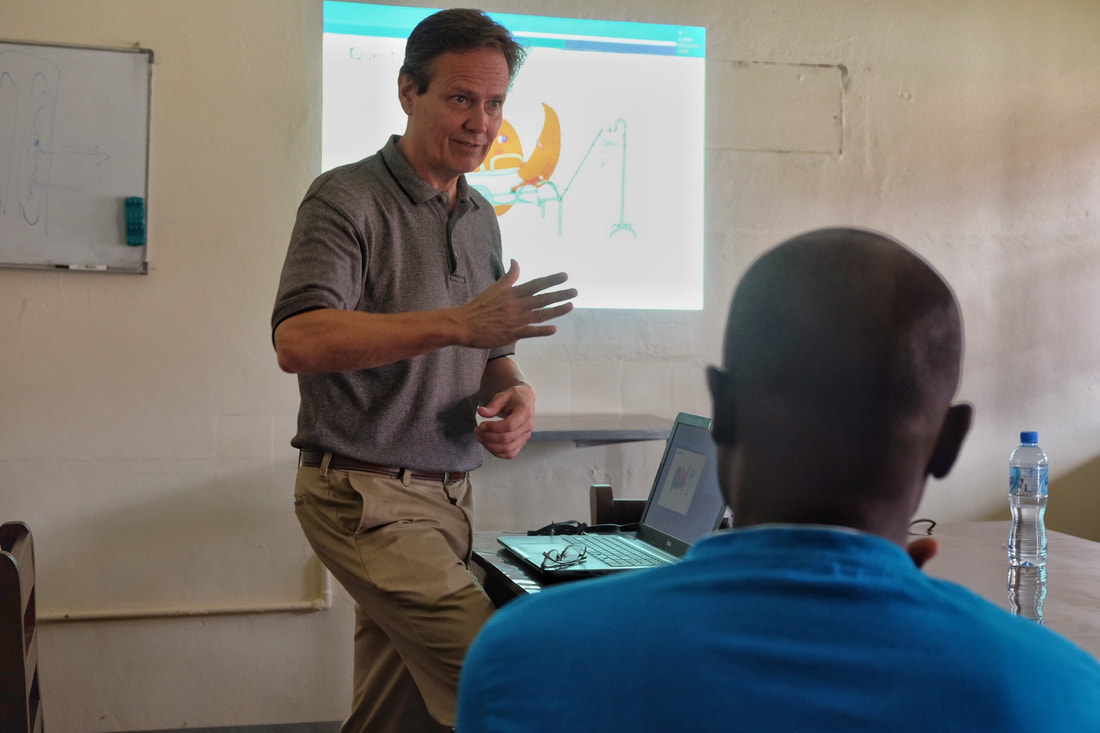
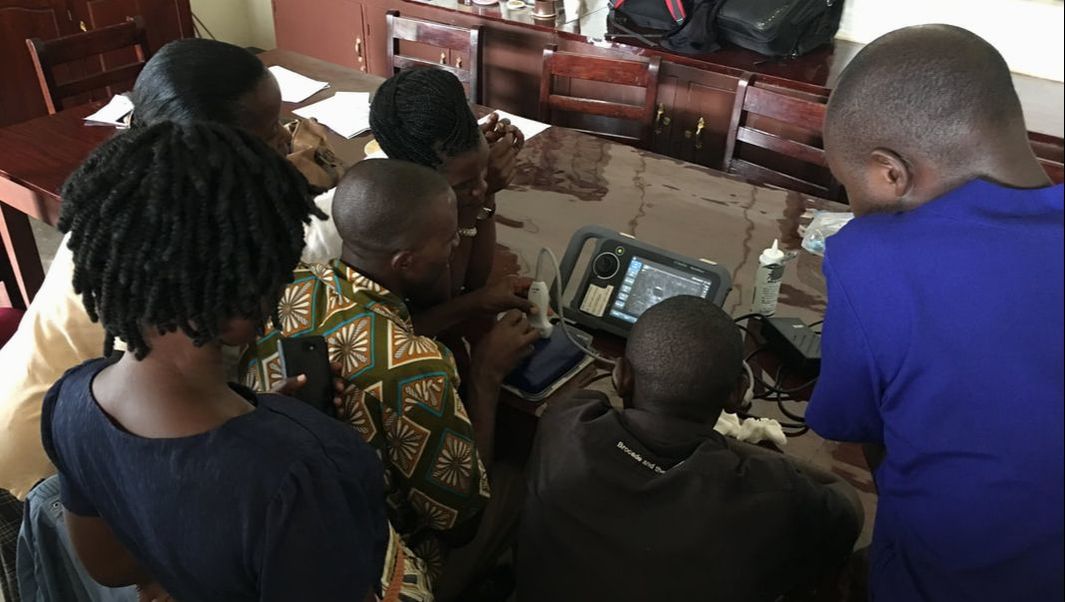
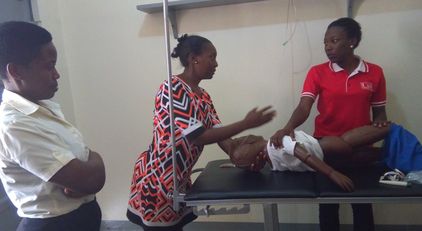
This Post Has 0 Comments